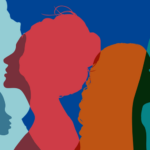 Univ. of Luxembourg/Luxembourg Centre for Contemporary and Digital History/Europe Direct (Web)
Univ. of Luxembourg/Luxembourg Centre for Contemporary and Digital History/Europe Direct (Web)
Time: 20.-21.04.2023
Venue: Luxembourg
Proposals due: 01.03.2023
The question of women’s role in international relations has given rise to a growing body of research since the mid-1970s. Topics have included pacifist activism during World War Two (Gottlieb & Johnson, 2022; Goedde, 2019; Bell 2015), the feminist movement, human rights issues (Briatte, 2020; Kaplan, 2014; Offen, 2000) and gender issues in international relations theory, as well as other subjects within the fields of gender studies and intersectionality studies (Carver & Lyddon, 2022; Hancock, 2016; Steans, 2013). Female leadership in international relations and post-war diplomacy has also been explored (Müller & Tömmel, 2022; Owens & Rietzler, 2021; Aggestam & Towns, 2018; Sluga & James, 2016).
At European level, too, there has been increasing interest in this area. In policy terms, however, although the Treaty of Rome introduced a European gender equality policy in 1957, it was only from 1975 that a common policy on women’s economic and social rights began to be developed. Research has ranged from parity issues (Bereni & Reveillard, 2007; Deshormes, 1991) to women’s participation in the exercise of political power (Woodward, 2004; Union interparlementaire, 1995), the concept of gender mainstreaming as a cross-sector approach (Abels & Mushaben, 2012; Lascoumes & Le Gales, 2004) and female networks and gender issues in European integration (Hertner, 2021; Briatte, Gubin & Thébaud, 2019). But notwithstanding these efforts, in general the presence and influence of women, whether formal or informal, in power relations (Gaspard 2009), institutions (Carbonell, 2019; Dénéchère, 2016), international relations and diplomacy (Badel, 2021; Doré-Audibert, 2002; Seidel, 2023) has received scant attention.
The history of European integration and Europeanisation has developed into a varied field that has moved on from an initial focus on the vision and achievements of the founding fathers. However, even though women played a vital part in the European project launched after the Second World War … reade more and source (Web).
